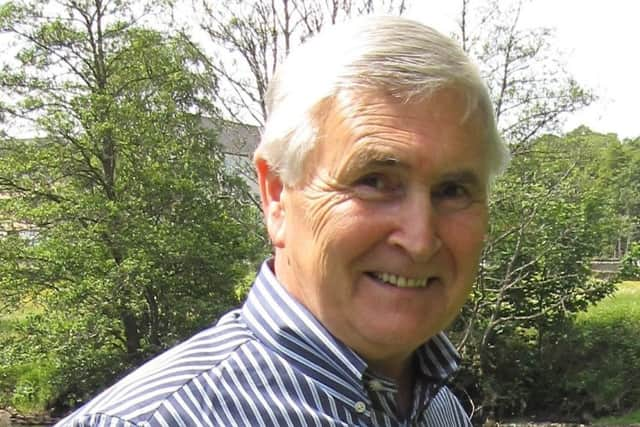Reduce your risk of cancer '“ and watch for signs and symptoms


Smoking is responsible for around 19 per cent of cancers but diet, inactivity, alcohol and excess body weight combined account for a further 22 per cent. If there was a drug that could achieve this level of prevention everyone would probably want to take it but there isn’t one. Lifestyle changes can reduce the risk of getting cancer significantly and that isn’t possible for every disease.
Scotland has introduced a number of policies like restrictions on tobacco use, minimum alcohol pricing and a range of action around food and drink available in the NHS and voluntary sectors. However, everyone has a part to play in supporting the changes needed to reduce their individual risk of cancer.
Advertisement
Hide AdAdvertisement
Hide AdProfessor Annie Anderson, of the Scottish Cancer Prevention Network (SCPN), said: “Obesity is growing within every community in Scotland. It is hard to manage your body weight and eating too much is a normal response when we are tempted by promotions, marketing and money off deals.


“Changing food and diet habits is likely to take time so start small.”
Here are some tips from the SCPN to get you started:
• No eating between breakfast and lunch;
• Trying eating/having two less biscuits, cakes or sweet drinks a day to start with;


• Always have a jug of cold water in the fridge;
• Use an old fashioned plate for dinner – and put less on it;
• Save cakes for birthdays.
Advertisement
Hide AdAdvertisement
Hide AdVisit SCPN website for recipes, tips and much more www.cancerpreventionscotland.org.
Bill Culbard (pictured) was diagnosed with lung cancer after his wife encouraged him to get a bad wheeze checked out by his GP.
After being referred for an x-ray, Bill received news that a shadow across his lung had been found which was subsequently diagnosed as cancer.
As the tumour was inoperable, Bill’s treatment involved chemotherapy and radiotherapy which started just three weeks after his diagnosis. The treatment was successful and Bill received the good news the following year that the cancer had gone.
Advertisement
Hide AdAdvertisement
Hide AdBill, who has dedicated his time to raising awareness of the benefits of finding cancer early, said: “Being diagnosed early makes such a difference to your chances of survival and I’m just glad I acted when I did.
“There’s so much that can be done to treat lung cancer these days, but it’s important people play their part in getting any concerns checked out.”
Here are some potential signs and symptoms of cancer that are worth visiting your GP about. Remember, having one of these doesn’t mean you have cancer, it could be a sign of something else, but either way, it’s better to have your concern checked:
• A lump in the breasts, testicles or anywhere else that appears or an existing lump that gets bigger;
Advertisement
Hide AdAdvertisement
Hide Ad• A sore that doesn’t heal up – in the mouth, throat or on the skin;
• A mole that changes shape, size or colour;
• Any growth that appears on the skin and continues to grow;
• Coughing up blood, or blood in the urine or mixed through stools (poo);
• A cough that doesn’t go away, or a pain somewhere that won’t settle;
• A change in the pattern of going to the toilet;
• Unexpected weight loss (when you have not been trying to lose weight).